 A meme was going around this week having a little fun at the weird juxtaposition of Ash Wednesday and Valentine’s Day. It was a red and pink Valentine’s Day card covered in pretty hearts that said, “We are going to die.” Yes, we are. That’s what Ash Wednesday is all about, to remind us of our own mortality, our own fallen and broken nature, that we are going to die someday and we cannot truly live without the salvation of a righteous relationship with Christ Jesus. Ash Wednesday is not something we Church of Christers typically observe. But this year we began the traditional season of Lent with more than 900 of our brothers and sisters from our three partner churches, by hosting the 4Midland Ash Wednesday service at GCR.
A meme was going around this week having a little fun at the weird juxtaposition of Ash Wednesday and Valentine’s Day. It was a red and pink Valentine’s Day card covered in pretty hearts that said, “We are going to die.” Yes, we are. That’s what Ash Wednesday is all about, to remind us of our own mortality, our own fallen and broken nature, that we are going to die someday and we cannot truly live without the salvation of a righteous relationship with Christ Jesus. Ash Wednesday is not something we Church of Christers typically observe. But this year we began the traditional season of Lent with more than 900 of our brothers and sisters from our three partner churches, by hosting the 4Midland Ash Wednesday service at GCR.
And it was glorious.
We combined the worship teams and choirs from all four churches and sang nearly a dozen songs together. We confessed our sins and listened to our Lord’s words of forgiveness and assurance. We prayed. We sat in silence. And then we sang some more. Pastors and shepherds from all four churches applied ashes from ten stations down front. And I think we sang the whole time.
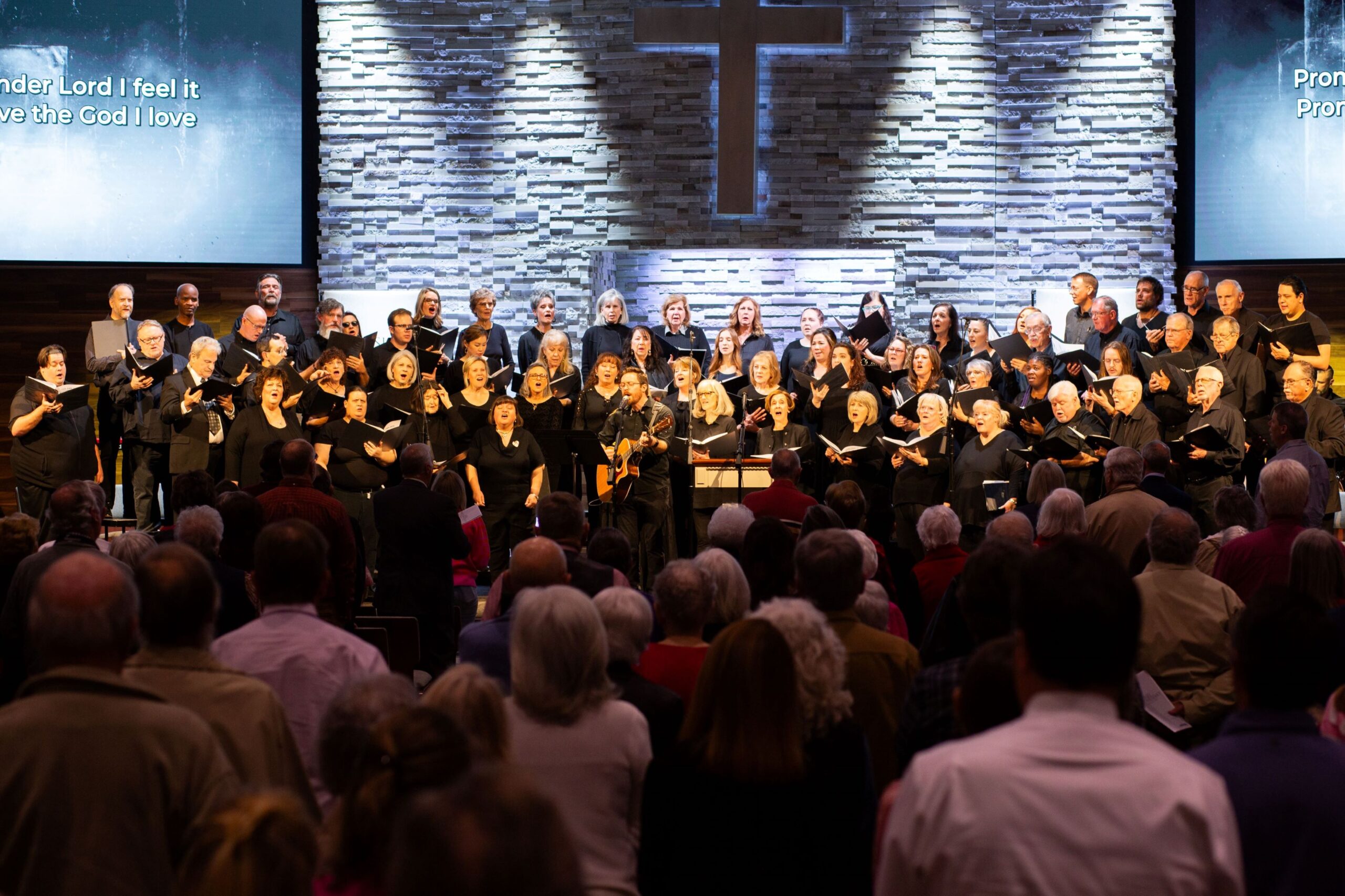
It was glorious.
We Baptists and CofCers have very little experience with Ash Wednesday–we’re still mostly just sticking our toes in the water at this point and feeling this thing out. Darin Wood opened the evening by holding up the order of service and announcing to the Baptists in the room, “This is a liturgy.” Even the Methodists and Presbyterians seemed a little uneasy receiving ashes in a CofC worship center with no stained glass or kneeling benches. Thank goodness for Steve Brooks who provided the ashes for our service–I wouldn’t even know where to begin! But there was love. So much love. The unity and love was thick in there last night. The smiles and the warmth. The hugs and hospitality. It was evident on every face and felt in every interaction. There was a sweet spirit in the room before, during, and after the event.
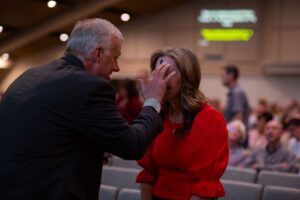
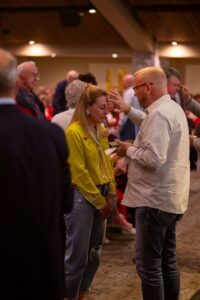
I was honored to share the ash-imposing duties (ash imposer? ash applier? there’s got to be a better term for that, but if Steve Schorr doesn’t even know what to call it, maybe there’s not) with our GCR Youth Minister J.E. Bundy and our Children’s Minister Kristin Rampton. However, I realized about four minutes into the ashes part that I was standing too close to Kristin. One of the great joys of applying ashes–there are many!–is in the interactions I have with little kids. Last night I would notice small children in the line, our GCR children, and smile at the thought of blessing them with the ashes and the words of Scripture. But they were all going to Kristin!
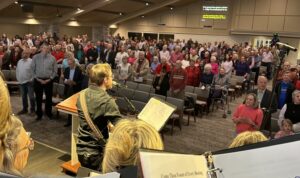
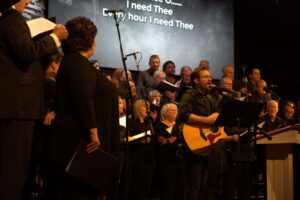
I am thankful for Deeann Camp who came down the aisle to me with their two-week-old daughter Clara. Two-weeks-old! It was her first time in church since having the baby, the first time the baby had been to church, the first time I had seen her. How humbling it is, how provocative and eye-opening, to apply a tiny little cross to that itty-bitty brand-new forehead and look that infant baby in the eyes and tell her that someday she will return to the dust from which she is made. I’m guessing that was a powerful moment for Deeann. I hope it was. It was for me.
Methodist ashes, a Baptist-style choir, Church of Christ songs, and Presbyterian prayers.
And it was glorious.
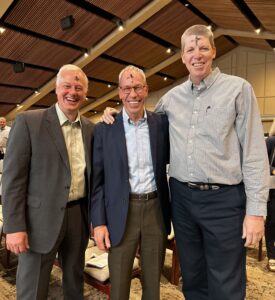 I am so grateful to God to be at a church that sees all Christians as God’s children and our brothers and sisters in Christ and is actively breaking down the walls between denominations. I am so thankful to be the preacher at a church like this. I am grateful to the Lord for the wonderful team of ministers and elders at GCR who believe so much in the Gospel work of unity and labor so hard to pull it off. I am thankful for my friendships with Steve Schorr, Darin Wood, and Steve Brooks. I am thankful for the vision we share of a more united Body of Christ. We took this picture just to prove that not every single time we get together is for cheeseburgers.
I am so grateful to God to be at a church that sees all Christians as God’s children and our brothers and sisters in Christ and is actively breaking down the walls between denominations. I am so thankful to be the preacher at a church like this. I am grateful to the Lord for the wonderful team of ministers and elders at GCR who believe so much in the Gospel work of unity and labor so hard to pull it off. I am thankful for my friendships with Steve Schorr, Darin Wood, and Steve Brooks. I am thankful for the vision we share of a more united Body of Christ. We took this picture just to prove that not every single time we get together is for cheeseburgers.
God bless our four churches during this important season of Lent. God bless our brothers and sisters in Christ at First Methodist, First Baptist, and First Presbyterian. And may our worship and service partnership together be an undeniable witness to the power of Christ’s love to tear down every barrier between us and God and between us and one another.
Peace,
Allan










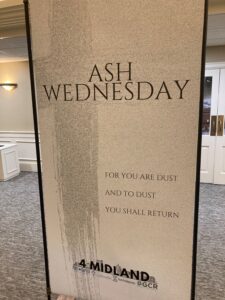

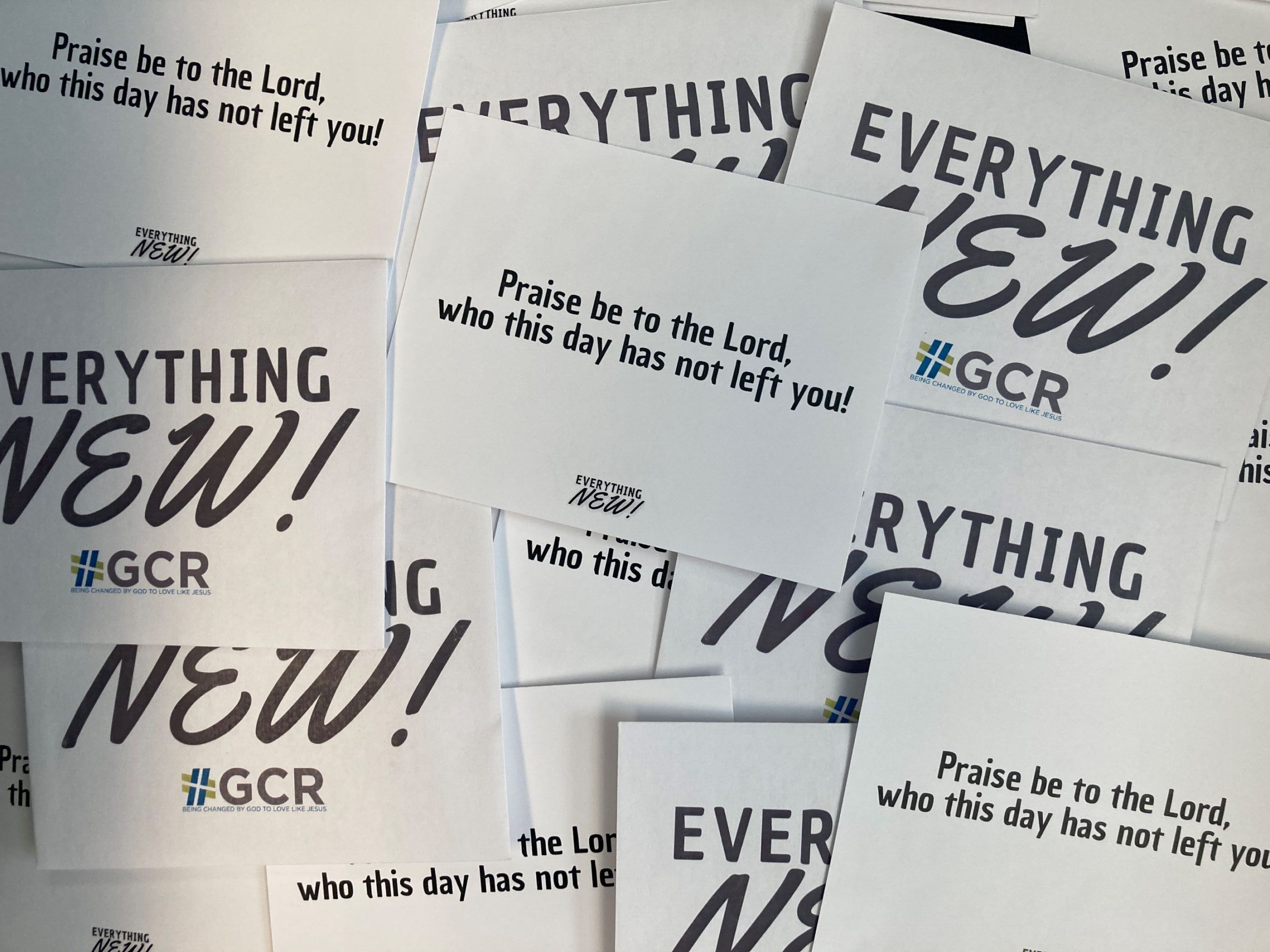
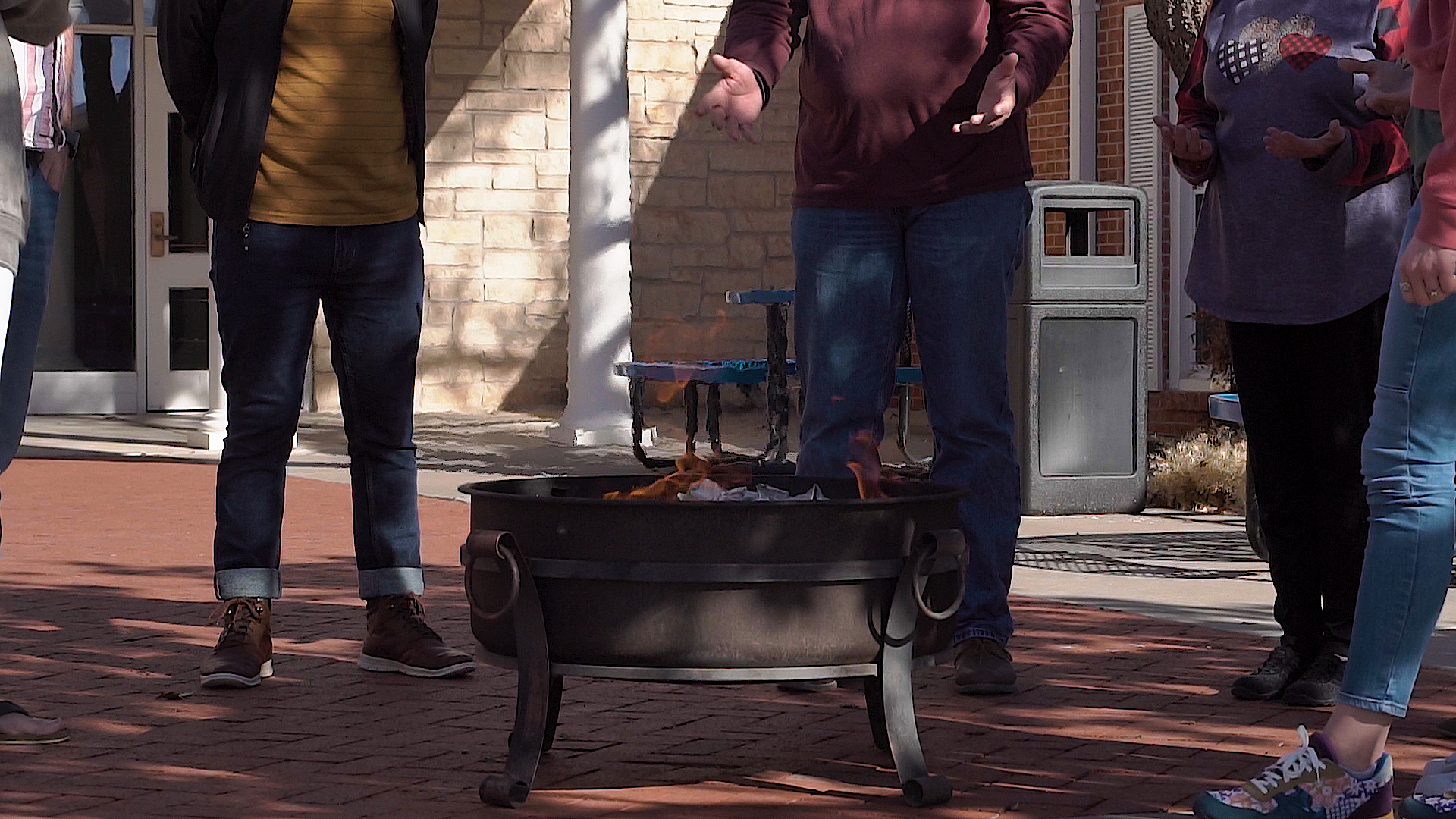
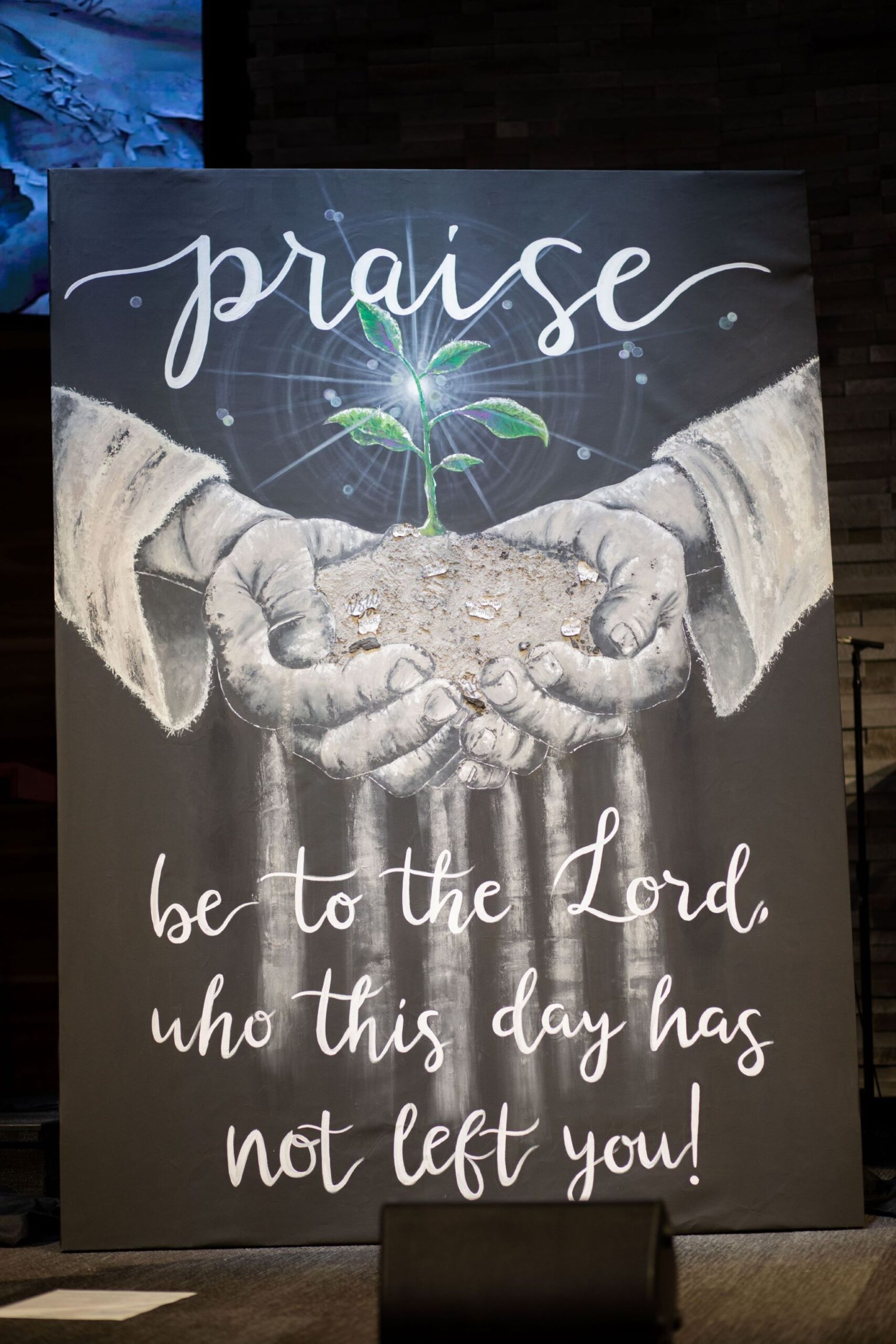
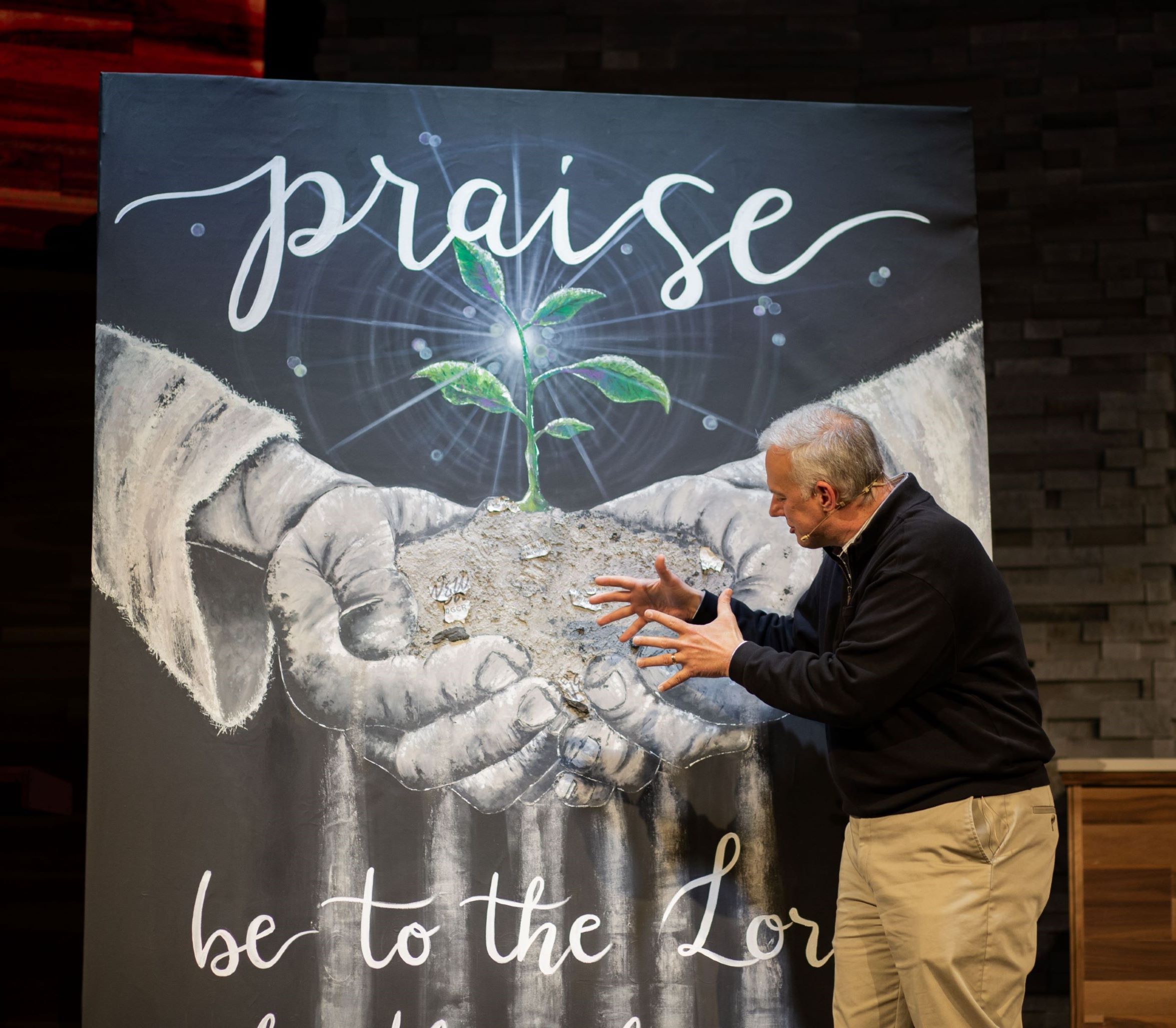
Recent Comments